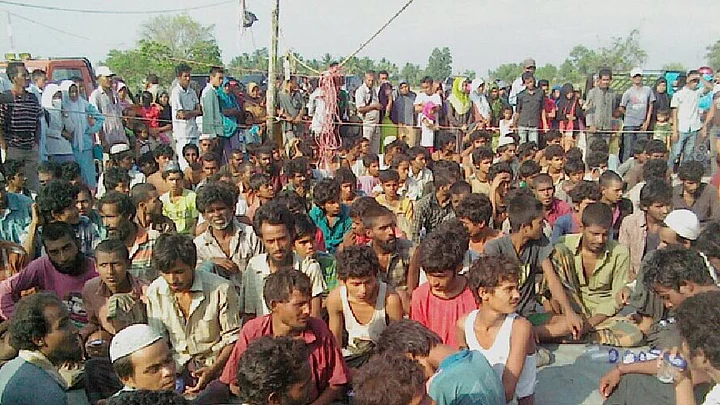In their manifesto for the 2014 general elections, the BJP had promised “India shall remain a natural home for persecuted Hindus and they shall be welcome to seek refuge here.”
According to various media reports over the last few months, most recently in The Hindu, the BJP-led NDA government is planning to fulfil that promise. The Home Ministry, according to the report, will likely push an amendment to the 1955 Citizenship Act to allow people fleeing religious persecution in Bangladesh and Pakistan to become Indians.
Hindu, Sikh, Zoroastrian, Jain, Buddhist and Christian migrants without documentation will be eligible for Indian citizenship. Muslims, however, seem to be missing from this list.
The prospect seems unlikely, and even if it does, such a law may not stand up to judicial scrutiny.
There is definitely political mileage to be gained from the move, since illegal immigration from Bangladesh is an issue both in Assam and West Bengal, two states where assembly elections are scheduled for 2016.
The granting of citizenship to migrants may also adversely affect relations with neighbouring countries.
Opinion pieces have appeared in leading newspapers questioning both the legal validity and ethos behind a law that favours a single community.
Will the government really pass a law that discriminates against one community? It seems unlikely, given the potential fallout of such a law.
Endangering Hindus in Bangladesh
The Bangladesh and Pakistan governments and media will not be too happy with the new law, according to Deb Mukherji, who has been India’s High Commissioner to Bangladesh.
Relations between India and Bangladesh, on a high since the historic 1974 Land Boundary Agreement was inked early July, are likely to suffer.
However, a law which excludes Muslims will be seen as favouring Hindus and this could actually endanger Hindus in Bangladesh.
The loyalty of Hindus in Bangladesh is already questioned, and they are seen as partial to India. A move like excluding Muslims will actually increase persecution of Hindus.
– Deb Mukherji, former High Commissioner to Bangladesh
Mukherji also said that certain communities are favoured at certain times by the administration, but this is not usually formalised by law. And if religious persecution is a criterion, Muslims are eligible as well.
Ahmediya and Shia Muslims also face persecution in both Pakistan and Bangladesh. Why should they be excluded?
– Deb Mukherji, former High Commissioner to Bangladesh
A Lack of Constitutional Validity
On August 4, Ram Madhav, National General Secretary of the BJP, said that the government would pass a law that would provide citizenship to those persecuted in Bangladesh.
No person who came from Bangladesh out of persecution or harassment will have to leave Assam or India. The NDA government at the Centre will soon bring necessary amendment to the present citizenship Act to grant citizenship to those persons.
– Ram Madhav
Any such law, though, cannot exclude one religious community. Article 14 and Article 15 of the Constitution guarantees equality before law and prohibits discrimination by the government on grounds of religion.
Speaking to The Quint, former Home Secretary GK Pillai said that such a law would not pass muster with the Supreme Court.
I am not sure about the rationale behind the law, but granting citizenship rights on the basis of religion while excluding one community could well be struck down by the courts.
– GK Pillai, Former Home Secretary
Is the Media Jumping the Gun?
During a rally in Assam in April this year, BJP President Amit Shah had echoed Ram Madhav’s claim, saying that Hindus fleeing persecution would find a haven in India. He also said that the BJP would free Assam from the “clutches of Bangladeshi infiltrators”.
Given the significant anti-immigrant sentiment in Assam, these statements are clearly politically loaded. But will they translate into actual legislation?
There may well be elements in the government that feel strongly about such a law. However, the significant diplomatic and constitutional hurdles make even the attempt at such a move unlikely.
